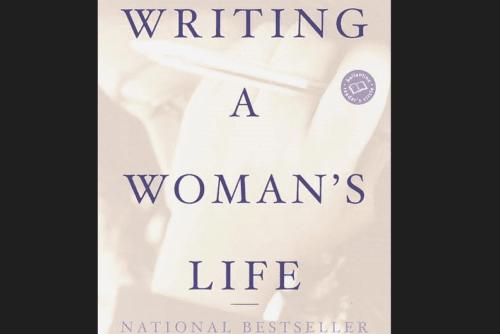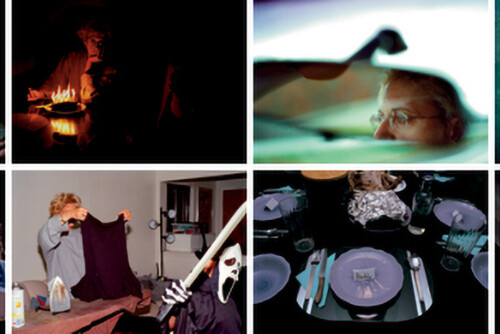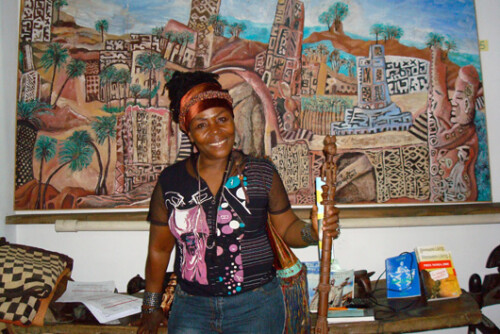I am very happy to add my welcome to all of you who have come for Writing a Feminist Life: Academics and Their Memoirs, a conference in honor of Carolyn Heilbrun. I’m going to say a bit about the subject of the conference and also a bit about the way we have organized the day. Those of us who put the conference together wanted to honor Carolyn by thinking about a topic that engaged her throughout her career, that is, how one narrates women’s lives. Whether writing about her own life, writing biography, or constructing the life of Kate Fansler in her detective fiction, Carolyn was perpetually interested in the cultural narratives that shape as well as record women’s lives and in the difficult process of breaking with the conventions that fetter thought, action, and narration. The deeply gendered “dictates of the appropriate” were always her enemy. I think she would have enjoyed taking part in a conference about the memoirs of academic women; at least I hope so, and in that hope we offer this day as a tribute to the intellectual conversations Carolyn helped set in motion and to the body of work she left us.
For myself, I remember Carolyn fondly. When I was offered a job at Columbia in the late 1980s, I hesitated. I had two small children and could not quite imagine moving husband and kinder into New York City and completely altering the course of all our lives. While I was contemplating the possibility, Carolyn called me, and it was a very strange conversation, given that her job was to recruit me. She told me that Columbia was a very difficult place, especially for women, and not for the faint of heart. So much for conventional assurances about how wonderful one’s new academic home would be. But she also said that I would never find better students than here at Columbia and that I would never find a city more conducive to intellectual life than New York. She sort of, I thought, was daring me to come. An unusual recruiting strategy perhaps, but in retrospect seems very much of a piece with the brisk efficiency with which Carolyn spoke the truth as she saw it. And by coming I did, of course, alter the course of my life in ways that perhaps I will only understand if, as I hope to do, I someday write a memoir of my own.
But I have often felt that Carolyn was not far wrong in many respects. I have loved the life made possible by this city, I have found my students perpetually rewarding and challenging, and I have, at times, found Columbia a difficult place, though one worth working to change and one made easier for me simply because Joan and Carolyn were here before me. I owe directly to Carolyn, for example, one of the very happiest and most productive aspects of my own life at Columbia – that is, the existence of the Institute for Research on Women and Gender that Carolyn founded in the mid-1980s. She herself only ran it a year or two, but the crucial step was simply to create it, to make it possible, and leave it for others to use. The Institute has grown and flourished, and it has become a crucial meeting place and site of work for many of the dearest friends and colleagues I have known at Columbia. Along with the English department, the Institute is hosting this conference today, and this is a good moment to say a special word of thanks to Lila Abu-Lughod, the present Director, for her support for this event and for her wonderful leadership of the Institute, and a special word of thanks to Marianne Hirsch, who joined the Columbia faculty this year as a joint appointment between English and the Institute, and who has done much of the work of pulling this conference together. I know Carolyn would be overjoyed that Marianne is now part of the Columbia community. I would also like to thank Joy Hayton, the English Department administrator, for all her help in locating Carolyn’s former students and friends and for much other assistance. And I would like to thank the wonderful staff and students at the Institute – Mona, Adrienne, Louise, Ann Kim, Christine, Page, and Amalia – all of whom have gone above and beyond the call of duty in making today possible. And, finally, thanks to our students for their interest in Carolyn’s work, their enthusiastic participation in creating the next wave of feminist undertaking, and for their help today. I want especially to thank the members of POW, a feminist undergraduate organization, the members of which will be handling the mobile microphones during our question periods today and in general making the day run smoothly. This evening, if you are on campus, you are all invited to stop by Earl Hall to see the exhibit of feminist art that is being hung there under the auspices of POW.
The format for today’s conference is, we hope, an interesting one. We have asked our very distinguished participants if they would do two things: first, read a section from their own memoirs and then comment on the genre. We urged them to think about a common set of questions: why, for example, have so many academic feminists written memoirs in the last several decades? What is the relationship of the genre to feminist theory and historiography and to feminism’s politics of the personal? How do differences in generation, race, class, and ethnicity or sexuality inflect and alter the stories women tell about their lives? In the course of the day we hope that all of you will join us in thinking about these issues. At the end of each session we have left time for questions and conversation, and we hope you will take advantage of that opportunity to join the discussion. At the end of the day please join us for a reception to be held in the entry to the English department on the sixth floor of this building where you will have an opportunity to talk further to the speakers.
I am now delighted to introduce Beth Povinelli, a new colleague recently arrived from the University of Chicago and jointly appointed in Anthropology and the Institute for Research on Women and Gender. Beth and Marianne Hirsch both joined us this year, and we have all felt already the good effects of their energy, good humor, and keen intellects. Farah Griffin, who is listed on the program as moderator of this session, has been suddenly called away by a death in her family, and Beth has agreed to step in to take her place.



